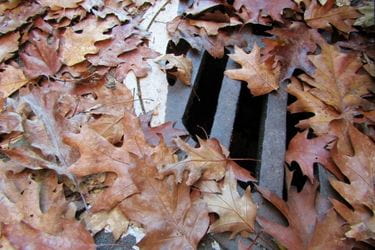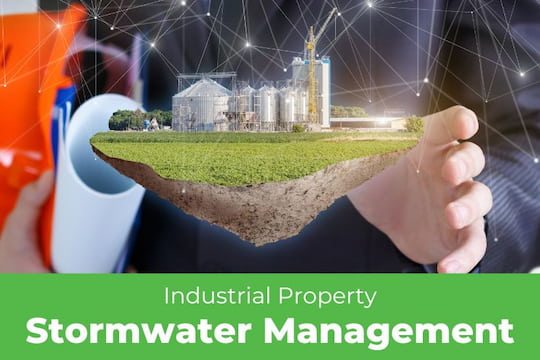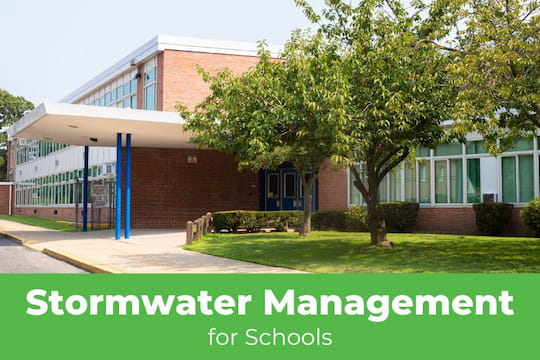During the fall and winter in the Pacific Northwest, many property managers and owners worry about flooding season, and with good reason. The average yearly precipitation in Seattle is 37 inches, 65% of this happening during the winter months. Privately-maintained stormwater systems must hold up against the rainfall, and most property managers are not privy to the functioning of their property’s stormwater system, or how to best prevent flooding. In this article, we will discuss proactive maintenance efforts that prevent fall and winter floods.
Leaf Removal

Type 1 catch basins are generally the first structures on a property to catch stormwater. They are usually about 2’x2’ wide with a grate on top. Their structure includes a sump at the bottom to hold sediment and a pipe to convey stormwater to the next structure downstream. Even if the sump and pipe are clear and ready to hold and convey water, leaves can easily accumulate on top of the catch basin grate, blocking water from entering the system and quickly causing a flood. It is important to make sure all catch basin grates in your parking lot or roadway are kept clear and free of leaf debris.
Proactive Jetting

Every stormwater system is unique, and occasionally, a system will have challenges that cause repeat flooding. Jetting can be a highly effective way to prevent floods in known problem areas. Infiltration is a common feature of stormwater systems that can benefit from proactive jetting. In an infiltration system, stormwater ultimately exits the system by becoming groundwater through small perforations, which can easily become clogged with sediment. Proactive jetting can also be helpful for systems that struggle with chronic root infiltration.
Annual Maintenance

The best way to prevent flooding is an annual stormwater management program. Municipalities require that stormwater systems be inspected and maintained every year and have a current maintenance certificate on file, a requirement that continues to become increasingly strict. Municipal inspectors check private stormwater systems yearly and/or require compliance reports to be submitted. When the needed maintenance comes as a surprise, or the system has not been maintained properly, property owners are often looking at a hefty bill to get back in compliance or could face municipal fines for non-compliance. Your stormwater system maintenance provider should know your system well and provide an economical plan to keep you in compliance year-round, prevent flooding and other problems, and improve the overall health of the environment (something you can brag about!)
Proactive Care Prevents Flooding

Proactive maintenance is a must for property managers to stay in compliance, prevent damage to their tenants’ property, and protect the environment from harmful pollutants. At CatchAll Environmental, we hope that you will utilize these tips at your properties and enjoy the benefits of knowing that this year’s rain won’t be a problem for you or your tenants.













.jpg)


